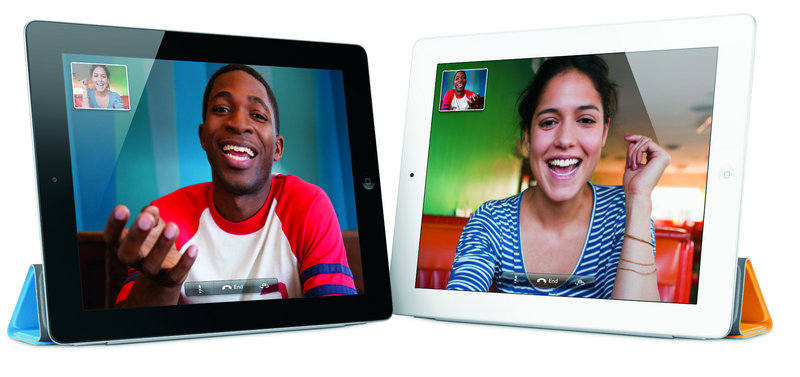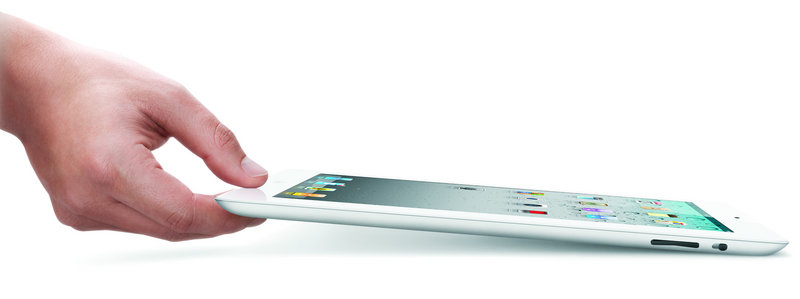LOS ANGELES – There was a time when Steve Mehta was on his laptop nonstop. Nowadays, he hardly touches it.
The 43-year-old attorney uses his tablet computer to highlight legal briefs, take notes for court cases or flip though a digital version of the California probate code.
“The laptop is so limited,” Mehta he said as he stood against the wall of a crammed Los Angeles subway car, watching an episode of “Modern Family” on his tablet. “But everything you want to do, this thing does.”
So long, laptop? Not quite. But in just over a year, the tablet era ushered in by Apple Inc.’s iPad has upended the personal computing world.
Manufacturers say sales of tablets will eclipse those of laptops in the U.S. by next year. Retailers are beginning to set aside more space for tablets, shrinking display room for other computers. Microsoft Corp., whose fortunes are still largely linked to the PC, saw its largest one-day stock drop in two years last month on declining software sales.
As for netbooks, industry executives say those downsized laptops are toast, as consumers opt for tablets instead.
“What the tablet did was completely cannibalize the netbook,” said Michael Hurlston, a senior vice president at Broadcom Corp., the Irvine, Calif., company that supplies microchips to many of the largest computer and tablet manufacturers, including Apple.
Hurlston noted that sales of tablets were growing nearly three times as fast as those of laptops.
Worldwide, manufacturers are expected to sell 50 million tablets this year, up from 19 million in 2010, according to research firm Gartner Inc. In 2012, that number is projected to top 100 million.
Laptop sales, with 230 million units expected this year, still dominate globally, but in the United States they are expected to be leapfrogged by tablets much the same way that laptops surpassed desktop PCs in the middle of last decade.
In the U.S., where tablets have been a huge hit, PC sales fell 11 percent in the first quarter compared with a year earlier, according to data from market tracking firm IDC. It was the largest drop in nearly 10 years.
At the Best Buy store in West Los Angeles, the amount of display space devoted to tablets has quadrupled in the last year from four to 16 feet, manager Rafael Barragan said. That’s nearly three times as much shelf space as desktop PCs have there. Similar changes are being made across the company’s more than 1,000 U.S. stores, where “Tablet Central” areas will be built starting this summer.
“There’s definitely a huge swing to the tablet market,” Barragan said. “Pretty soon everything is going to be touch screen.”
Apple is one of the major beneficiaries of the tablet boom. Since introducing the iPad on April 5, 2010, the Cupertino, Calif., company has reported $12.4 billion in sales of the device.
Many computer users still prefer the laptop’s physical keyboard for writing. And unlike PCs, tablets don’t yet allow users to burn CDs or DVDs, play more graphics-intensive video games or store large music and photo collections. And with the glacial pace at which many companies replace workstations, the millions of PCs parked on cubicle desks around the world aren’t likely to disappear overnight.
Tablets, with their limited screen size and lack of a keyboard, are not yet as effective for tasks that involve a great deal of typing or creative work. They are still a rare sight on college campuses, where students need the versatility of laptops to crunch numbers and write long papers.
But early adopters say portable keyboards, wireless printing and the wide availability of software and entertainment over the Web probably will make tablets more appealing to laptop devotees.
The tablet is also becoming an all-in-one reading device, with access to digital versions of thousands of books, newspapers and magazines.
Apple in particular has struck deals to sell digital books from all six major U.S. book publishers, and this month Hearst Corp. said it would sell iPad subscriptions to several of its magazines, including Esquire and Popular Mechanics.
News Corp.’s Daily was the first daily news magazine to be sold through the iPad.
The surge in tablets’ popularity has led Steve Jobs, Apple’s co-founder and chief executive, to declare a new chapter in computing. He is calling it “the post-PC era” — a noteworthy pronouncement, given that 35 years ago, he was largely responsible for ushering in the PC era in the first place.
Apple still maintains a healthy business in PCs, with laptops and desktops accounting for about 20 percent of the company’s $25 billion in revenue last quarter. But iPads, though just a year old, accounted for 11 percent of the quarter’s sales.
Apple has yoked its future to its array of lower-cost, consumer-friendly mobile devices, with the iPad emerging as the keystone. In a launch event for the tablet in March, Jobs said he wanted 2011 to be “the year of the iPad 2.”
Apple’s rivals are hoping otherwise. New tablets from a number of Apple’s biggest competitors — Motorola, Hewlett-Packard Inc., Research in Motion Ltd. — have hit stores this year. Ads featuring tablets and smartphones have flooded the airwaves as manufacturers battle for a piece of the burgeoning tablet market.
Send questions/comments to the editors.




Success. Please wait for the page to reload. If the page does not reload within 5 seconds, please refresh the page.
Enter your email and password to access comments.
Hi, to comment on stories you must . This profile is in addition to your subscription and website login.
Already have a commenting profile? .
Invalid username/password.
Please check your email to confirm and complete your registration.
Only subscribers are eligible to post comments. Please subscribe or login first for digital access. Here’s why.
Use the form below to reset your password. When you've submitted your account email, we will send an email with a reset code.